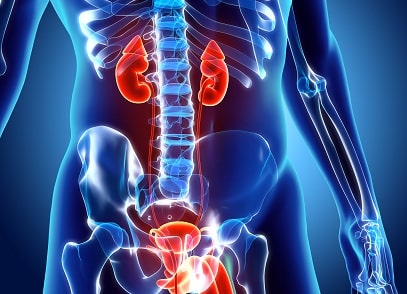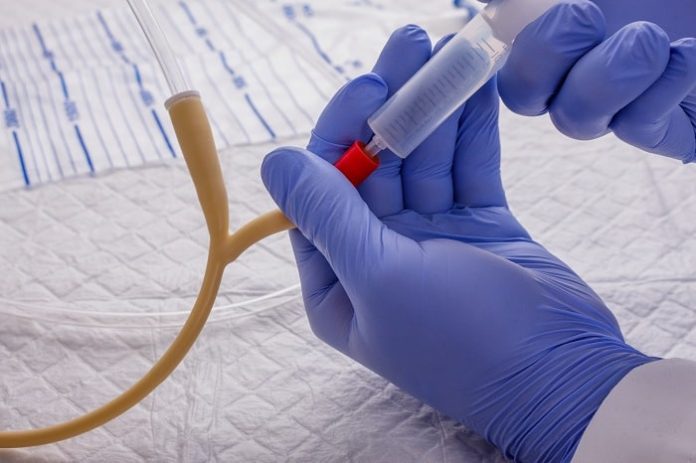Urological problems are painful and can be life-threatening. These conditions need urgent medical intervention. Once you’ve been prescribed medicine, you’ll also get precautionary information depending on your urological condition. Precautions for urological problems may include catheter care at home, diet strategies and natural products to complement the prescribed medicine.
In this article, we’ve enumerated the ways to manage urological problems at home, as well as a rundown of what exactly urological problems are.
What Are Urological Problems?
Urological problems are experienced in different forms by various people. Urological problems can affect both males and females differently, as they differ in the anatomical structures.
-
Prostate Cancer
Though the causes of prostate cancer are not clear, however it’s one of the most common cancers observed in males. Harbored in the prostate, it grows slowly and if left unattended, spreads rapidly in other parts of the body. Symptoms of prostate cancer include frequent urinating, decreased urinating pressure and blood in the semen. It’s important to research as much as one can regard prostate cancer, as it’s a popular type of cancer in men. Urological Research Foundation provides in-depth information regarding prostate cancer. When detected early, the chances of a successful process of treatment is high.
-
Urinary Incontinence
This is the condition where one doesn’t have control over their bladder. Although people are embarrassed when faced with loss of bladder control, it’s a fairly common situation for most of the elderly. Causes of urinary incontinence include pregnancy due to weakened pelvic muscles, diabetes, enlarged prostate, old age and diseases such as Parkinson’s disease.
-
Urinary Tract Infections
Urinary tract infections occur when bacteria or viruses attack the urinary tract. The result of this invasion by bacteria is an infection. One experiences pain when urinating, and urinates quite frequently. Doctors usually prescribe antibiotics in hopes that the infection will go away within 3 to 5 days.
-
Uteral Stones
Uteral stones occur when kidney stones move into the urethra. The path, in which urine is supposed to flow, is as a result blocked, causing pain and inflammation. Depending on the severity of the condition, doctors prescribe medication, or in some cases, surgery.
Symptoms Of Urological Problems
Symptoms of urological problems include erectile dysfunction in men, pelvic and abdominal pains, frequent urinating, painful urinating, and blood in urine, bloating and infertility. If you experience any of these symptoms, be sure to contact a doctor skilled in the area or urological conditions.
These symptoms aren’t only indicative of urological problems. Hence, it’s important to avoid self-diagnosis, or receiving guidance and information from uncertified internet platforms. A doctor should always be the first point of contact when you begin to experience such symptoms.

Now that we have explored the different ways urological problems can present themselves, let us take a look at how these can be managed at home.
-
Catheter
There are urological cases where one is unable to urinate in the bathroom. Take, for instance, a prostate cancer patient who has undergone surgery. After being discharged from the hospital, the patient and the caretaker have to receive training regarding the working and usage of a catheter, without risking damage and infections. It’s essential to get training from professionals and not from random information on the internet. Doctors are knowledgeable in the processes, and inform you when you need to call the doctor during the processes of using the catheter at home. Extreme care needs to be taken when using a catheter at home to avoid infection. Once the patient gets an infection from a mishandling of the catheter, damaging the ripple effects of this will be experienced. Not only are such mistakes costly, but life threatening as well.
-
Diet
When facing urological problems at home, you have to be mindful of the food that you intake. You must avoid foods that cause inflammation. Fruits, vegetables and water have to be the main foods in your diet because of the nutrients that are required to restore your urinary processes. Non-vegetarian foods may cause more harm than aid in such health situations. The methods of cooking also have to be in line with the healthy eating strategy. Deep fat fried foods and added sugars to the foods that you are supposed to take, is counter-productive to the healing process.
-
Prescribed Medicines
Doctors will prescribe medicines that have to be taken according to the times that are stated. Skipping the times that are meant for the taking of medicines, will make the patient experience excruciating pain. Skipping medicine also slows down the process of healing.
-
Exercise
When going through physical pain and ailments, it is tempting to spend the day in bed. Light exercises are encouraged to get the blood flowing and prevent blood clots. Your doctor advises about the kind of exercises and duration of your workout, depending on the urological problem that you might be experiencing. Be sure that you don’t over-exert yourself, as this causes more pain.
-
Rest
Your doctor might recommend bed rest to you. Rest is needed for your body to recover and regenerate. If you’re too physically active during the process where your body is supposed to be healing, the process is prolonged. You might damage yourself even more than before, placing yourself at a worse health risk. Take that time to try and enjoy the much needed sleep that you need.
-
Call Your Doctor
When you’re managing urological problems at home, you must have your doctor on speed dial. Your doctor would have informed you that you must call him or her when certain symptoms occur. If the pain continues to be excruciating, or you begin to see a lot of blood passed through the catheter, you must not stay silent in your home. Such symptoms may be indicative of other underlying health problems, or be a sign that the urological system is worsening. Your doctor can advise on the next steps to take, once you have contacted him or her.
-
CBD Oil
CBD is a natural remedy that’s appreciated for its possible healing properties. Its anti-inflammatory properties can reduce the aches and pains that are experienced when facing urological problems. CBD also has relaxing properties that are sought for when experiencing discomfort throughout long periods. CBD doesn’t contain the TCH psychoactive component, though it may have calming and soothing effects. You might be able to sleep peacefully as a result, and wake up feeling better than the prior day.
CBD oil can be taken in many different forms to alleviate the pains that come with urological problems. You can take CBD in form of pills, droplets and lotion cream to massage on the paining areas of the body. You can also purchase products, infused with CBD such as beverages and gummies.
There’s currently no official recommended dosage of CBD oil. It’s therefore important to speak to the doctor who’s tackling your urological problems, before including CBD oil in your healing process. Your doctor is able to diagnose you and recommend the correct dosage and time for taking CBD oil. It is also important to research the types of CBD oil products that are available and the possible side effects. Your doctor can discuss all this information with you. CBD oil is not to be used as a replacement for medication regarding urological problems. It is simply a natural remedy that may complement medical advice and treatment.
Conclusion
There are different kinds of urological problems that must be tackled in the early stages, before these become life threatening. These include prostate cancer, urinary tract infections, uteral stones and urinary incontinence. Different symptoms are associated with the various urological conditions. Therefore, a specialized doctor qualified in this field, needs to be contacted. Once the medical processes for healing starts with the doctor, the patient and the care giver have to carry on the care and precautions at home. Care at home may include the use of a catheter, an intentional diet, exercise, and natural remedies that can alleviate pain, inflammation and discomfort. It is important not to replace medical intervention with natural remedies in conditions such as these that may be life threatening. Natural supplements such as CBD don’t have officially recommended dosages required for the treatment of these conditions. Patients also respond to natural remedies differently from each other. Hence, it’s advisable to start by taking small test dose and see how your body responds to it. Some may suffer from side effects, which serves to hinder the process of healing which is the ultimate goal. It’s important to remain in contact with your doctor when you are managing urological problems at home. You’re also encouraged to journal the progress or lack there-of, so that your doctor can map the way forward regarding your condition. Your doctor will make sure that you’re equipped to overcome urological problems at home and possibly enjoy a clean bill of health.
Have you ever experienced urological problems? How have you been coping and managing this issue at home? Let us know in the comments below.


















